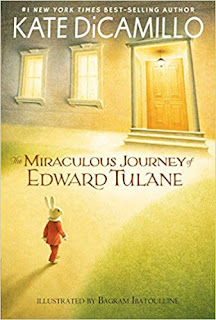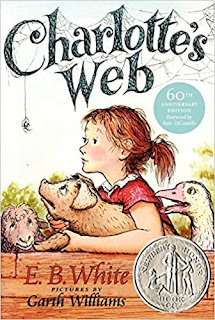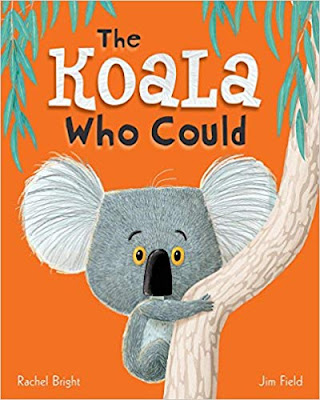You can start off your year by challenging your students to think! These are common first week reads and examples of higher level questions you can ask after reading them aloud.
1) Why do you think Victoria made fun of Chrysanthemum's name?
2) How did the parents make her feel better? What do your parents do for you when you are sad?
3) How would you handle it if someone was making fun of your name?
4) How do you think parents decide what to name their child?
5) Was Chrysanthemum right in the way she responded to Victoria?
6) What would you do if you heard someone making fun of another kid's name?
7) Create a new ending for the story.
8) If the main character's name was "Jane", how would the details of the story have changed?
9) Were there any patterns in the story?
10) How did Chrysanthemum change over the course of the story? Will she still like her name as she grows up? What do you think she'll name her child?
A story about a little mouse with a speech impediment who was unfortunately was named Rodney Rat.
1) Why do you think Camilla Copybara was so mean?
2) How is Rodney like Chrysanthemum?
3) What other things could Rodney have done because Camilla was a bully?
4) How would you treat a friend like Rodney?
5) How would the story have been different if Rodney didn't have a speech impediment? What details would have changed?
6) Was what Rodney and his friends did at the end right ethically?
1) What would Miss Nelson have done if she didn't have a sister to help her?
2) How would you react if your teacher was Viola Swamp?
3) Was it right that Miss Nelson tricked her students? Why?
4) What details would have changed if Viola Swamp had been nice?
5) Why do you think the students wouldn't listen to Miss Nelson in the first place?
6) How would you feel if you were Viola Swamp?
7) How would the story have been different if Miss Nelson was a mean teacher?
Since we introduce so many rules the 1st week, a way to explain why they are important, and a great book about teamwork as well.
1) How did Officer's Buckle's rules compare to the rules in our class? Are any the same?
2) Would the story have been different if Gloria was a cat?
3) What would the world be like if we didn't have any rules?
4) When have you worked with someone else and made a good team? What helped make it a good team?
5) Was it right for Gloria to act out the parts without Officer Buckle knowing about it?
6) How did the speeches change over time, how will his new speeches look?
I love this book! It's about a little boy telling the farm animals he's going to Kindergarten and they hypothesize about what that is because they haven't heard of it before.
1) What other things that the boy does daily do you think confuse the animals?
2) How was the boy's 1st day of Kinder like yours? Different?
3) If you were the boy, how would you explain what Kindergarten was?
4) Do you think he did a good job of explaining to the animals?
5) When the boy goes to 1st Grade, will the animals be confused again?
6) How would the story have been different if the boy was just going to the store?
1. Do you think all teachers prepare for their students the same way? How might they differ?
2. How is Miss Bindergarten's class similar/different from our class?
3. Why do you think the author chose to put the students name in the order of the alphabet? Does that add to the story?
4. Was there a pattern in the story? Can that help you figure out what happened next?
5. Do you think the teacher will prepare for her students the same way next year?
6. How do teachers, parents and students view a classroom differently?
1. Why do you think Chester did not want to attend school?
2. If you were a parent, what would you do if your child got upset about starting school?
3. Did Chester's mom do the right thing?
4. What do you think will happen next year when back-to-school time comes?
5. If the author had chosen another creature for the characters, how would the story change?
6. Do you think Chester's mom could use this technique for other problems Chester might have, like what?
7. Would Chester's Dad or siblings use another technique to calm Chester down?
2. If you were a parent, what would you do if your child got upset about starting school?
3. Did Chester's mom do the right thing?
4. What do you think will happen next year when back-to-school time comes?
5. If the author had chosen another creature for the characters, how would the story change?
6. Do you think Chester's mom could use this technique for other problems Chester might have, like what?
7. Would Chester's Dad or siblings use another technique to calm Chester down?









































